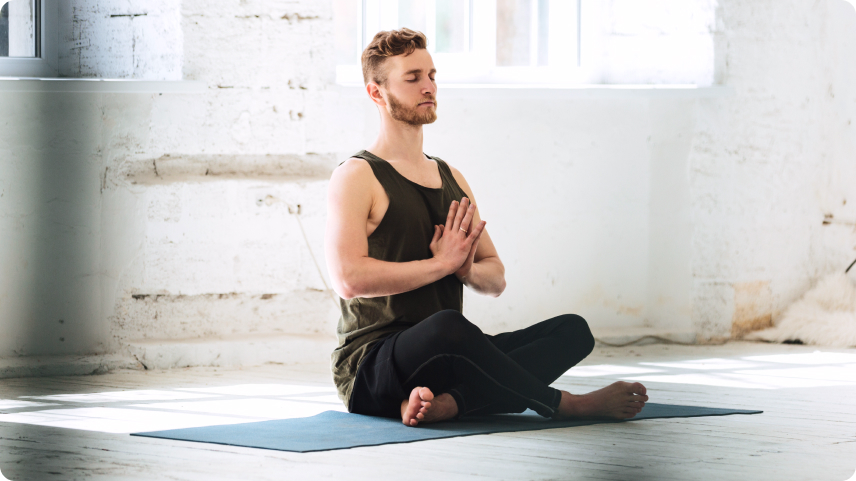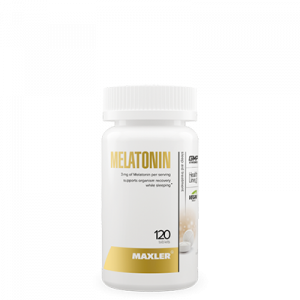Tossing and turning in bed is exhausting for sure. Many of us have been there. Helping yourself fall asleep at night might seem like a challenge that you just don’t really know how to overcome. Luckily, things you do during the day can help. Add in some exercise regularly, and you’ll be able to see great benefits to your sleep. This post will cover 10 exercises you can do, helping you answer the constant question of how to improve your sleep.
How exercise can help you sleep
You might wonder – won’t exercise just keep me awake instead of going to bed? It turns out that moving throughout the day is known to offer help for sleepless nights. It can also be beneficial for those who suffer from sleep apnea, as it can decrease its severity.
You can also pair exercise with sleep-promoting supplements, like Liquid Melatonin or Melatonin in tablets, which are a great and easy way to boost sleep quality.
Why timing and frequency matter
If you’re trying to get the most sleep benefit from your exercise, you need to consider when you train. That’s because after exercise, our body releases endorphins which can cause some people to remain wakeful, becoming a reason for sleepless nights. That’s why many people can’t sleep after exercise. Additionally, it increases body temperature, which is the opposite of what you want when falling asleep. Therefore, try to finish your exercise about 1-2 hours before bed.
If you abide by that, it doesn’t really matter when you exercise — whether in the morning or in the afternoon. Ensure you’re getting 30 minutes of exercise daily of moderate intensity, and you’ll be improving your sleep quality in no time. No more sleepless nights!
Our top picks for better sleep
If you’re ready to make a difference in your sleep, then try one or more of these 10 exercises!
- Tried and tested — walking. Any sort of cardio will do, but brisk walking, at a pace where you’re still able to chat to someone is a great option. It’s low impact, requires no equipment, and can be done with your best buds! It’s an easy solution offering help for sleepless nights.
- High-Intensity Interval Training (HIIT). If you’re a fan of short bursts of intense activity, rejoice! HIIT can be a great way to improve sleep quality, especially if you don’t tend to get much exercise daily. Just remember to practice it regularly for the best effects.
- Swimming for better sleep. Swimming is another great low-impact option that works out the whole body. This form of cardio can support sleep if you do it regularly.
- Strength training. Think cardio is the only way? For those who like to go to the gym, regular resistance training can help with mood and improve sleep quality. Why not try a gym session or do some resistance exercises at home?
- Stretching. Stretches can help your blood flow and relax your muscles, so you’re prepared for the oncoming slumber. It might also lengthen your REM sleep, which is important for memory.
- Yoga for winding down. Yoga can be a great option for getting you into a relaxed state before bed. It can be especially useful for women.
- Work on breath control with breathing exercises. Breathing exercises for sleep can be a great way to calm down and relax, offering help for sleepless nights. Try techniques like belly breathing for a relaxed breath or yoga breathing. An easy breathing exercise is box breathing – inhale for four seconds, hold for four seconds, exhale for four seconds, and hold again for four seconds.
- Progressively relaxing muscles. Sometimes, you can employ mental techniques to help you fall asleep. This can be especially useful if your brain feels a little bit too loud and your thoughts are still racing. For this technique, mentally scan your body and relax every muscle group to help you get into the sleeping mood. Here’s how to do it: start at the top of your head and slowly notice any areas of tension or discomfort. Allow them to relax by releasing any tension in the muscles and imagining them becoming warm and heavy. Tensing them and releasing can be helpful as well to feel the relaxation response.
- Mindful meditation exercises can be a great way to support sleep. It can help you calm your thoughts, become less reactive emotionally, and live in the present moment, helping to to avoid sleepless nights. In addition to the mental benefits of meditation, you can also get physical benefits from it from activating your parasympathetic nervous system, slowing your heart rate down and allowing your muscles to relax.
- Visualization exercises. Another one for those who might not want to hit the gym before bed. Visualization exercises can help you relax and unwind as you prepare to drift off. Picture places or memories where you feel calm or choose a guided relaxation exercise. It’s a good idea to engage all of your senses when practicing visualization. Notice the colors you see, sounds you hear and emotions that you feel. Pair this practice with a few deep breaths for optimal results.
Supplements to pair exercise with
To help you boost your sleep even further, consider adding sleep-promoting supplements alongside your exercise. Try Sleep Gummies with Melatonin , which is a tasty way to try melatonin. Also Magnesium B6 can be a great way to provide plenty of magnesium to help your brain and sleep.
Sleep is crucial for performance, cognitive function, mental health, and overall well-being. It’s always a good idea to investigate the reason for sleepless nights. If you’re finding it hard to hit the pillow and fall asleep, exercises like walking, breathing exercises, or yoga can be a great way to help you improve your sleep. Take control of your sleep for a healthier and happier you.













